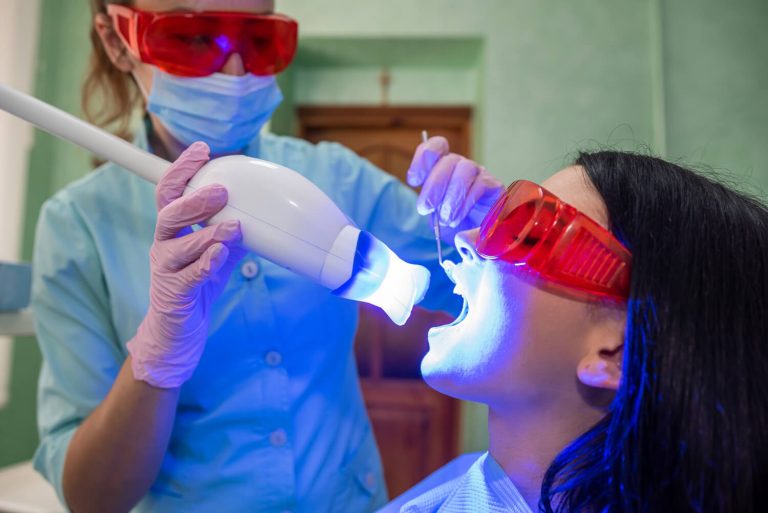Your last set of adult teeth to grow in are called “wisdom teeth”. Third molars is another name for wisdom teeth. If they cause extreme constant pain, infection or other health issues, you might need to have your wisdom teeth removed. Sometimes wisdom tooth grow in properly without causing any pain or infection. But often it comes not in a proper direction or get stuck in your gums or jawbone. That’s why many health providers recommend extracting them, to prevent pain. Symptoms of wisdom tooth include swelling and stiffness, pain, facing difficulty while opening the jaw and even during breathing sometime.
Wisdom teeth, typically emerge between the ages of 17 and 25. These molars come in without causing any issues, for some people. However, for many others, wisdom teeth can lead to various problems that may become necessary to remove. In this article, we will explore seven common signs that may indicate you need your wisdom teeth removed. It is really important to get your wisdom teeth out as soon as issue starts in ordre to avoid that situation. When the pain dooesn’t go away even after brushing and flossing your teeth properly, it clearly indicates to consult your dentist for check-up.
Constant Pain and Discomfort
One of the most obvious signs that you may need your wisdom teeth removed is persistent pain and discomfort in the back of your mouth. This pain can be dull, or sharp and may spread out to your jaw or even your head. It is often caused by the pressure applied by the appearing wisdom teeth on the surrounding gums. If you experience persistent or extreme pain, or feeling pain when biting or chewing , it’s essential to consult with a dentist at that time.
Swelling and Inflammation
Another feature of painful wisdom teeth is swollen gums. The problem with the wisdom teeth is that they are not emerging in the right direction , that’s why they cause extreme pain or irritation in the gums.
Wisdom teeth that are emerging (meaning they cannot fully emerge) can lead to swelling and inflammation in the surrounding gum tissue. This inflammation can cause pain, difficulty opening your mouth, and discomfort in chewing. Swelling and inflammation are general signs that your wisdom teeth are causing problems and may need to be eliminated.
Difficulty in Proper Oral cleanliness
It is challenging to clean properly your wisdom teeth at the back of your mouth. As a result, food particles and bacteria can gather around these teeth, leading to oral health issues such as cavities and gum disease. If you find it hard to maintain proper oral hygiene in that part where your wisdom teeth are present it could be an indication that elimination is needed.
Cysts
In some cases, wisdom teeth can develop cysts within the jawbone. If these growths are left untreated, as they are painless in their early stages, they can result in creating serious complications. Regular dental check-ups and X-rays can help detect these type of issues early, allowing for quick intervention and removal of the affected wisdom teeth.
Crowding of Teeth
The appearance of wisdom teeth can disturb the arrangement of your existing teeth, leading to crowding. This can result in orthodontic problems and may need additional dental work to rectify. If you notice changes in the alignment of your teeth, it’s critical to consult with an orthodontist or dentist to examine if your wisdom teeth are the culprits. Actually crowding is the lack of space for all the teeth to fit within the jaws normally. Crowding of teeth can interfere with dental health and hygiene.
Sinus Issues
Wisdom teeth in the upper jaw are located near the sinuses. If these teeth become infected they can cause sinus pain, pressure, and congestion. Sinus issues related to wisdom teeth can sometimes be misdiagnosed as sinusitis. Therefore, if you experience recurring sinus problems, it’s advisable to have your dentist examine your wisdom teeth. Tooth pain caused by pressure of sinus and drainage from a sinus infection. Sinusitis common symptom is tooth ache.
Repeated Infections
Impacted or partially erupted wisdom teeth can create pockets where bacteria can develop , leading to recurrent infections in the surrounding gum tissue. These infections, known as pericoronitis, can cause symptoms such as pain, swelling. Removal may be necessary to prevent further complication, if you experience persistently gum infections in the location of your wisdom teeth.
Recognizing the signs that you may need your wisdom teeth removed is essential for maintaining your oral health and overall well-being. If you experience any of these signs, it’s crucial to consult with a dental professional for a thorough assessment and to discuss your choices for wisdom teeth removal. Early intervention can prevent difficulties and ensure a smoother recovery process. Remember that only a qualified dentist or oral surgeon can provide a definitive diagnosis and recommend the appropriate treatment plan for your specific situation.

